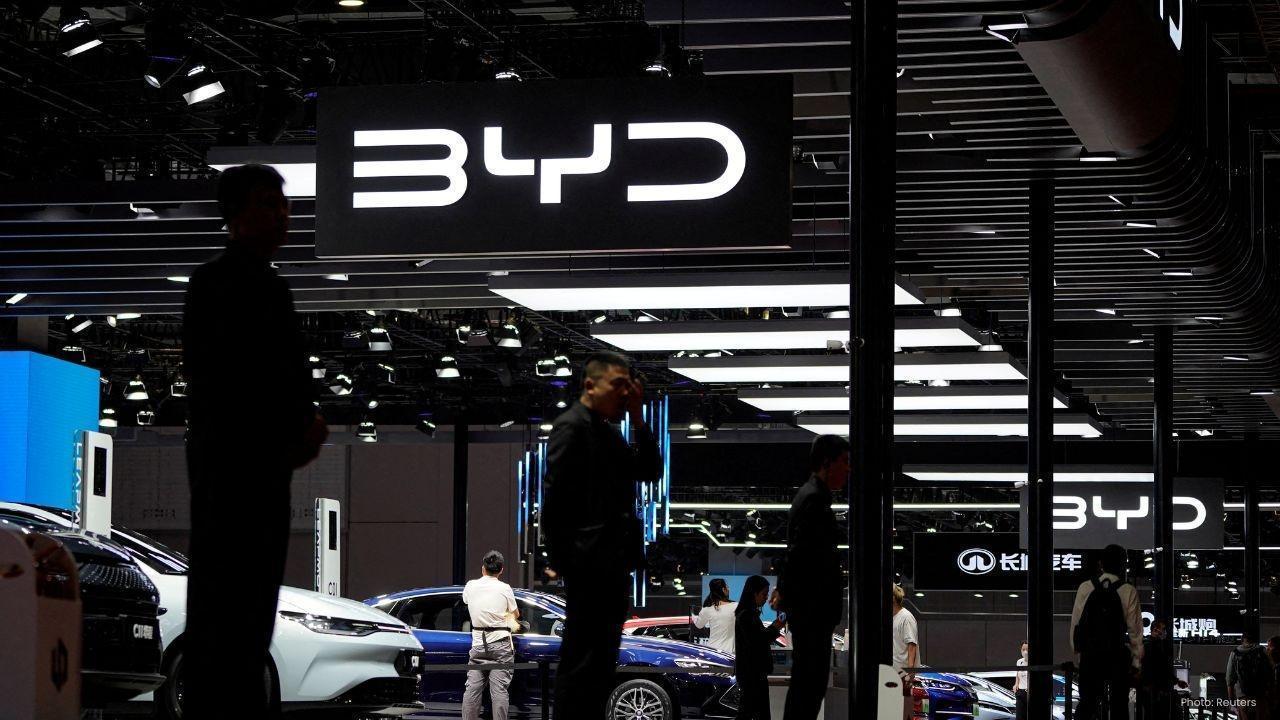
Post by : Bianca Suleiman
China’s electric vehicle powerhouse, BYD, is making a substantial adjustment in its payment methods for suppliers, departing from the usage of its self-created Dilian electronic IOUs in favor of conventional bank notes and commercial paper. This transition represents a significant alteration in a strategy that previously fueled BYD’s rapid growth but faced backlash for creating financial strain on suppliers.
Dilian: BYD’s Financial Strategy
Initiated in 2018, the Dilian system enabled BYD to issue electronic promissory notes to settle supplier payments. This innovative approach allowed the company to maintain strict control over its cash flow, decreasing reliance on external financing while minimizing working capital expenditures. Nevertheless, suppliers dealt with lengthy payment cycles extending as long as a year and incurred fees should they desire immediate cash for the notes. In contrast, traditional bank notes are typically associated with lower discount rates, making them more favorable for suppliers.
Industry Challenges and Regulatory Developments
This change comes amid intense pricing competition within China’s automotive sector. According to suppliers, there has been escalating pressure to lower prices and accept deferred payments. New regulations demand automakers conclude payments to suppliers within 60 days and limit the use of non-cash payment methods, including electronic IOUs. Despite these stipulations, some loopholes persist, particularly regarding delays associated with receipt acknowledgment, leaving suppliers financially exposed.
Effects on BYD’s Business
BYD itself has faced increasing challenges, with domestic sales plummeting 12% in October and a year-on-year market share decline from 19.1% to 13.2%. The company's revenue experienced a 3% decrease in the most recent quarter, alongside a profit decline of one-third, marking its first revenue drop in over five years. Analysts believe that abandoning the Dilian system may lead to increased cash outflows for BYD, complicating its ambitious expansion plans and new model introductions.
The Supplier Perspective
The modification could potentially ease burdens for parts manufacturers. Although Dilian notes were generally accepted in BYD’s network, they were often viewed as carrying a heightened risk of default and necessitated discounts of up to 6% for early cashing. Conversely, bank notes and commercial paper typically offer lower costs and quicker access to liquidity.
A Pivotal Shift for Supply Chains
This shift indicates BYD’s intent to maintain a balance between supplier relationships and its financial obligations. By transitioning to more standard and transparent payment options, the automaker aims to enhance supply chain stability and improve compliance with stricter regulations, even as it contends with slower sales and intensifying competition in China’s electric vehicle market.










Kazakhstan Boosts Oil Supply as US Winter Storm Disrupts Production
Oil prices inch down as Kazakhstan's oilfield ramps up production, countered by severe disruptions f

Return of Officer's Remains in Gaza May Open Rafah Crossing
Israel confirms Ran Gvili's remains identification, paving the way for the Rafah border crossing's p

Border 2 Achieves ₹250 Crore Globally in Just 4 Days: Sunny Deol Shines
Sunny Deol's Border 2 crosses ₹250 crore in 4 days, marking a significant breakthrough in global box

Delay in Jana Nayagan Release as Madras HC Bars Censorship Clearance
The Madras High Court halts the approval of Jana Nayagan's censor certificate, postponing its releas

Tragedy Strikes as MV Trisha Kerstin 3 Accident Leaves 316 Rescued
The MV Trisha Kerstin 3 met an unfortunate fate near Jolo, with 316 passengers rescued. The governme

Aryna Sabalenka Advances to Semi-Finals, Targeting Another Grand Slam Title
Top seed Aryna Sabalenka triumphed over Jovic and now faces Gauff or Svitolina in the semi-finals as